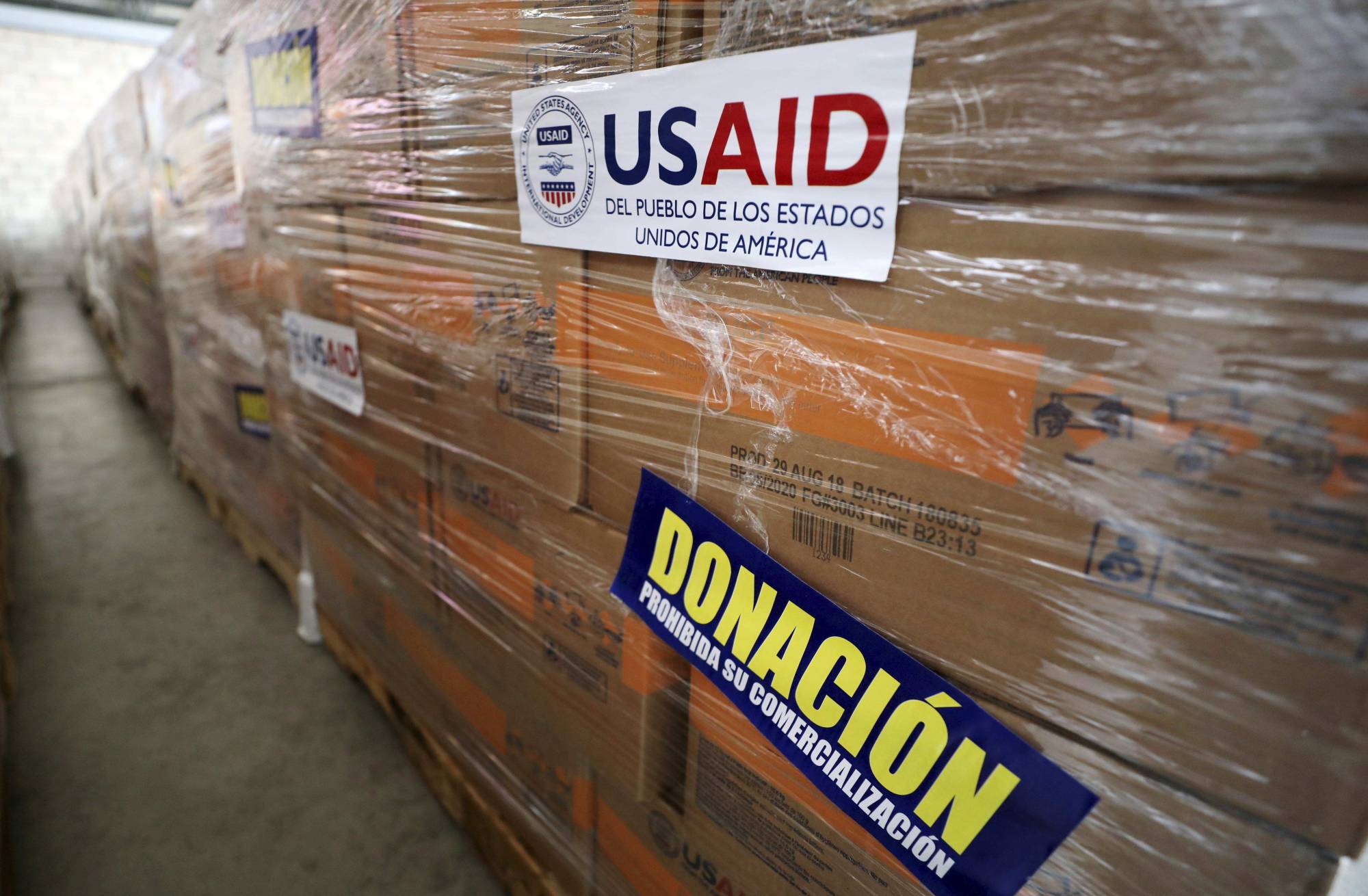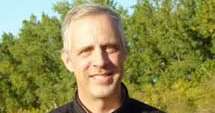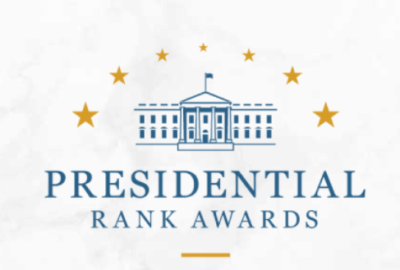Checking in with the scientist at center of NOAA climate research
Ko Barrett has been at the center of this research for many years in successive jobs at the National Oceanic and Atmospheric Administration.
Best listening experience is on Chrome, Firefox or Safari. Subscribe to Federal Drive’s daily audio interviews on Apple Podcasts or PodcastOne.
Climate and climate research has become a top priority for a large number of federal agencies and labs over the past few years. Ko Barrett has been at the center of this research for many years in successive jobs at the National Oceanic and Atmospheric Administration. Recently, she became a senior NOAA adviser for climate and also a Presidential Rank Award winner. For the final interview in our series of PRA recipients, Barrett joined the Federal Drive with Tom Temin for more.
Interview transcript:
Tom Temin: Ms. Barrett, good to have you on.
Ko Barrett: Thanks, Tom. Nice to be here.
Tom Temin: And just give us a sense of who you are. Are you a climate scientist? Are you a research expert? Are you a manager? What are you?
Ko Barrett: Oh, my goodness, what a question. I wouldn’t call myself a climate researcher. But I have spent my entire career in the climate space, most recently overseeing climate science, and previously kind of working in the climate policy arena.
Tom Temin: Got it. And besides your work at NOAA directly, you also have an interagency chairmanship on climate and tell us about that one.
Ko Barrett: I do. It’s an intergovernmental chairmanship, Tom. You may be aware that there is an intergovernmental panel on climate change, which has been stood up under the UN. It’s been in place for over 30 years and it’s really the preeminent climate body for assessing on a periodic basis, the state of the climate system. And so, in 2015, I was elected as one of the first women vice chairs of that organization.
Tom Temin: To the top U.S. representative there?
Ko Barrett: Yes, I’m the only U.S. representative on the kind of executive team for that organization.
Tom Temin: Alright. And at NOAA as senior climate adviser, then, you have to sounds like bridge the gap in interaction between what’s going on with the various laboratories and researchers, and those that are going to make policy. So how does that work?
Ko Barrett: Well, first, I’m just so honored to be the first person to be in this newly created position as senior adviser for climate at NOAA. The job is both inward facing and outward facing. The inward part, which I’m really loving these days, Tom, is just working across all of the parts of NOAA to craft a comprehensive and collaborative climate strategy. So, NOAA has been in place for over 50 years. We are at our core, a climate service. We have the Weather Service, people are very familiar with that aspect of NOAA’s work, but we also have a Fisheries service and Ocean service, and a research line that I recently came out of. And, the climate issue touches all of those areas, right, fish are moving to colder waters, towards the poles, that affects the fisheries mission. The weather and climate nexus in terms of extreme events, that’s just central to so much of what we do. And also increasingly, the ocean, which, absorbs so much heat and greenhouse gas emissions is key to the climate equation, as well. So I’m getting a chance to work across all these lines, with fabulous scientists and experts to kind of create a comprehensive approach. So that’s the internal part. Then, of course, this time in federal government is probably the best time in a generation to be working on an issue like climate. There’s more attention to this issue than ever before. And there’s so much interagency work going on, you referenced this earlier. We have working groups across government looking at important climate impacts, like drought and flood and coastal protection, wildfires, which were so fierce this summer for us. So we’re kind of working across many agencies to just bring our approaches together and try to achieve some significant goals together.
Tom Temin: And the researchers at NOAA then come up with research products that you can look at and access. Tell us what a research product looks like.
Ko Barrett: Oh, my goodness, there’s so many examples to choose from. But what I’ll say for your listeners who may not know what NOAA is, we sit within the Department of Commerce, we are an agency that is basically the department of data. We have so much climate information going back to Jeffersonian times, honestly. But we have observations from satellites. And on the ground, we have researchers who are some of the best climate modelers on the planet. And then we have all kinds of research that’s underway to serve the mission areas that I spoke of before. A good example: We’ve been monitoring greenhouse gas emissions in the atmosphere for a long time. And we can actually start to track where those emissions come from, so that we could help to determine whether the country is meeting its greenhouse gas emissions reductions goals. Simple example, but maybe something that’s accessible for your listeners.
Tom Temin: Well, in other words, a lot of datasets, a lot of measurement that’s resulting in datasets that can be used either within NOAA or by anyone who wants to subscribe to that data.
Ko Barrett: Exactly. And also importantly, we do a lot of our research In collaboration with our partners or people who use the data, so that we don’t just produce the data and throw it over the transom, we really work with people to understand how they best need to have research so they can make their decisions properly. And that helps to inform the way that we go back then, and maybe adjust our research to be responsive to the way that communities or the private sector need information.
Tom Temin: We’re speaking with Ko Barrett, she’s senior adviser for climate at the National Oceanic and Atmospheric Administration, and a recent recipient of a Presidential Rank Award. And the Presidential Rank Award came, I believe, from your work as running the programs and administration office at NOAA, which you have left. But what did you do there? Because it’s not a very descriptive title for an office?
Ko Barrett: Oh, my goodness, sometimes our titles within the federal government are not understandable to the average citizen. But you’re right. So my Presidential Rank Award was for both the work that I’ve been doing on climate internationally, but also for helping to run the research arm of NOAA. So in that job, I was kind of part of the leadership team for the research line. And I had such a great diverse range of research issues under my purview. So climate research, which is kind of my bread and butter, but also ocean exploration. People may not be aware that we have the mandate to explore the ocean. And we are still discovering new species every month, every year. So that was under my portfolio, weather research, ocean observations, which are so key to helping us to understand the weather and also the long term climate. Also, I was so privileged to have the Sea Grant Program under my portfolio, people may be aware of the land grant colleges, because they’ve been in place for a long time. We have Sea Grant Colleges and consortia that work on coastal issues and in the coasts hand in hand with NOAA. So that was kind of my portfolio there. I’m a little sad to leave it behind. But climate is such a big job right now. It is really absorbing all my time and energy.
Tom Temin: And did I read correctly that you shared in a Nobel Peace Prize?
Ko Barrett: Yes. Well, the Intergovernmental Panel on Climate Change received the Nobel Peace Prize in 2007. We shared it with [former] Vice President Al Gore for climate work across the globe and in the country.
Tom Temin: Alright, and besides associating with Al Gore, you have associated with the great Louis Uccellini of the Weather Service. So that’s quite a feather, too.
Ko Barrett: Oh, my goodness, Louis, just retired. It’s such a big hole in our leadership team. Yeah, what a fabulous leader and such a visionary for our Weather Service.
Tom Temin: And he was a great exit interview, too, here on the show. So you’re joining some of the greats being with us today. And just briefly, you’re a longtime federal career civil servant. And what got you into federal service in the first place?
Ko Barrett: Oh, my goodness, that’s a really great question. I started working as a contractor to the federal government at that time for the U.S. Agency for International Development. And it was really clear to me that working as a civil servant was a good fit for what I wanted to do. You know, I like trying to figure out a way for the federal government to solve problems from the unique perspective that we have. And it’s working with contractors with grantees with the private sector, to kind of do the things that are inherently federal. At NOAA, for example, we do core observations and we’ve maintained some of those series for over 50 years. That’s really important if you’re hoping to kind of respond to a long term trend, and inspire, say, the private sector or other grant recipients etc., to extend that work and to take it in meaningful ways. So it was always a great fit. The minute I saw that as an opportunity, I was grateful to be able to apply for a position and join the federal government.
Tom Temin: Ko Barrett is senior adviser for climate at the National Oceanic and Atmospheric Administration. Thanks so much for joining me.
Ko Barrett: Very happy to be with you, Tom. Thanks for showing your interest in the issue of climate and also in the award recipients.
Copyright © 2025 Federal News Network. All rights reserved. This website is not intended for users located within the European Economic Area.
Tom Temin is host of the Federal Drive and has been providing insight on federal technology and management issues for more than 30 years.
Follow @tteminWFED






